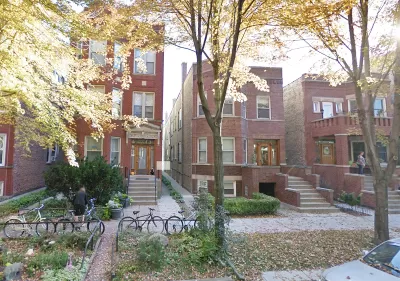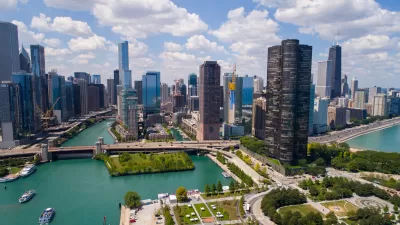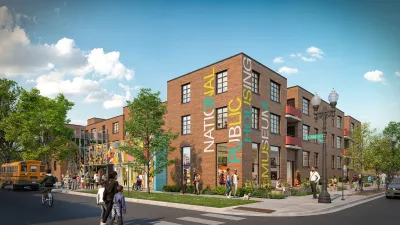One Chicago organization is working to promote the rehabilitation and maintenance of naturally occurring affordable housing, a valuable—and vulnerable—source of affordable housing units.

Hadassah Patterson, writing in Next City, reminds the reader that new construction only makes up roughly one quarter of the affordable housing market. “The rest is comprised of Naturally Occurring Affordable Housing, or NOAH, which falls between subsidized housing and high-rent buildings.” The city of Chicago, Patterson writes, lost 10 percent of its NOAH between 2012 and 2019, putting this reliable source of affordable housing in peril.
“One Chicago CDFI [community development financial institution] has been working to preserve that housing for decades. Called Community Investment Corporation (CCI), they have a wide range of programs, including their Troubled Building Initiative, to support the acquisition, rehabilitation and preservation of affordable rental housing.” That initiative, which dates back 20 years,
“is aimed at unresponsive landlords. Instead of the city of Chicago filing code violations, TBI pulls together multiple city departments including housing, police and building, to identify at-risk structures and appoint CIC as a stakeholder to make repairs.”
“CIC also brings together multiple organizations to collaborate on strategies, policies and programs to preserve affordable housing through its Preservation Compact. Preservation Compact is home to a $48 million acquisition pool for 1-4 unit buildings, and a $34 million low-cost financing fund for affordability in higher-cost markets.” The group advocated for tax relief for multifamily housing projects, “which incentivizes low- to moderate-income owners to improve buildings while keeping them affordable. This is critical to preserving more locally-owned NOAH stock as national markets face speculation from aggressive investment groups without stake in community stability. ”
FULL STORY: When Preserving Affordable Housing Is Cheaper Than Building It

Planetizen Federal Action Tracker
A weekly monitor of how Trump’s orders and actions are impacting planners and planning in America.

San Francisco's School District Spent $105M To Build Affordable Housing for Teachers — And That's Just the Beginning
SFUSD joins a growing list of school districts using their land holdings to address housing affordability challenges faced by their own employees.

The Tiny, Adorable $7,000 Car Turning Japan Onto EVs
The single seat Mibot charges from a regular plug as quickly as an iPad, and is about half the price of an average EV.

Toronto Condo Sales Drop 75%
In two of Canada’s most expensive cities, more condos were built than ever — and sales are plummeting.

Vehicle-related Deaths Drop 29% in Richmond, VA
The seventh year of the city's Vision Zero strategy also cut the number of people killed in alcohol-related crashes by half.

Seattle's Plan for Adopting Driverless Cars
Equity, safety, accessibility and affordability are front of mind as the city prepares for robotaxis and other autonomous vehicles.
Urban Design for Planners 1: Software Tools
This six-course series explores essential urban design concepts using open source software and equips planners with the tools they need to participate fully in the urban design process.
Planning for Universal Design
Learn the tools for implementing Universal Design in planning regulations.
Smith Gee Studio
City of Charlotte
City of Camden Redevelopment Agency
City of Astoria
Transportation Research & Education Center (TREC) at Portland State University
US High Speed Rail Association
City of Camden Redevelopment Agency
Municipality of Princeton (NJ)





























